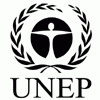Community / Land projects / Land Degradation Neutrality for biodiversity conservation, food security and resilient livelihoods in the Pean
Land Degradation Neutrality for biodiversity conservation, food security and resilient livelihoods in the Pean

€5697757.755
09/22 - 09/22
Завершено
This project is part of
Implementing Organisations
Donors
Data Providers
Objectives
Demonstrate the LDN approach in the Peanut Basin and Eastern Senegal for biodiversity conservation and delivery of ecosystem services to achieving food security and livelihood resilience.
Other
Note: Disbursement data provided is cumulative and covers disbursement made by the project Agency.
Target Groups
Research has shown that the returns on taking action against land degradation are estimated at 5 USD for every dollar invested in restoring degraded land in Senegal.[1] Assessments of the costs of action against land degradation through restoration and sustainable land management practices versus the cost of inaction highlight the strong economic incentive for bold actions against land degradation.[2] The project builds on this notion that the cost of inaction will be inordinately high impacting people’s health, lives, food security, and livelihoods. Without interventions, natural resources are likely to erode, which may exacerbate inequalities, increase competition for scarce resources, affect food security, reduce socio-economic opportunities and possibly result in migration. This project is expected to result in positive social, economic and ecological changes which will yield further benefits to communities. The proposed project will contribute to improving the socio-economic conditions of small farmers and pastoralists, rural households in targeted vulnerable areas. The integrated implementation of the four components will have an impact on knowledge enabling rural populations to adapt to the impacts of climate change; expand their sustainable natural resource management practices; improve food security through diversification of activities; an improved marketing system for agricultural products and non-timber forest products by capitalizing on the experience of linking market operators and producer organizations; a contribution to reducing social tensions between farmers, agro-pastoralists and pastoralists, as well as other users of natural resources, through better integration of production systems. Gender mainstreaming will strengthen the empowerment of women and youth through information, training and advocacy to encourage the mutual participation of all social categories. The proposed project will follow the GEF and FAO policy to ensure gender equality. Enabling rural people to learn about and apply good practices for the sustainable management of natural resources will also help to reduce land degradation and prevent competitive pressures on natural resources and the risks of desertification (indirect benefits for the global environment). In addition, the project will reduce their vulnerability and enhance adaptive capacity to prevent climate-induced economic losses (direct adaptation benefit). Additional socio-economic analysis will be conducted during project preparation to explore linkages and identify win-win solutions and socio-economic benefits. The project will benefit 87,500 direct beneficiaries of which 75% are women. Key elements of agroecology, identified in footnote 58, serve as a useful entry point by which to examine the benefits offered by this project: Diversity- The project is committed to support biological diversity and will support the planting, cultivation, and nursery development of varied, climate-resilient species. The project will shift people away from monoculture so as to reduce their vulnerability to any crop failure or pests. This is intended to achieve the following ecological benefits: § Less pressures on vulnerable areas that house key biodiversity § Increased ground cover, which will lead to less erosion and associated negative impacts on communities. § Improved biodiversity values- Through biodiversity-friendly agriculture, conservation practices, restoration and improved use of biological resources, reforestation of native, climate-resilient species, there is the expectation that biodiversity values will improve in the landscape identified by the project, mainly on Faidherbia albida and Cordyla pinnata. § In the southern part of the Peanut basin, the interventions will aim to implement strategies to limit the extraction of mangrove wood, which is increasingly used in the making of garlands for oyster farming. § In eastern Senegal, emphasis will be placed on sustainable management of production forests, of which species such as Combretum, Pterocarpus erinaceus, Cordyla pinnata are the most exploited. Co-Creation and Sharing of Knowledge- The project anticipates that collaborative spaces and mechanisms (multi-stakeholder platforms, Dimitra Clubs, Agro-Pastoral Field Schools) will allow the co-creation and sharing of knowledge, particularly among women. Cross-landscape consultations are anticipated to produce benefits such as greater exchange, social cohesion, networking among women, exchanges on best practices. Improved monitoring and evaluation will also record new types of knowledge that could be adapted into the project. Synergies- The project will result in new synergies among institutional partners, between municipal and national actors, among projects and programmes, and in incorporating LDN work into other development action. The benefits foreseen are: § Efficiency of resources by leveraging work that has already been done and preventing duplication § Partnerships and alignment between various programmes and activities to achieve aggregate-level results. Improved synergies and opportunities of joint learning between civil society, government local communities and the private sector: opportunity and interest in aligning some of the local government planning tools, with the execution and activities from smaller community groups. This project anticipates increasing collaborations and leveraging government capacity with local level expertise to achieve impacts at a larger scale. § Greater knowledge generated for project participants § Amplifying the voices of the marginalized into other fora § Greater coherence among municipalities can also decrease transaction costs. Resilience- The project is anticipated to provide the benefits of resilience in the following ways: § Climate resilience (climate smart villages) § Resilient restoration to benefit future generations and fight against desertification § Resilience of food supply § Resilience of profitable value chains to bear greater livelihoods § Resilience of partnerships—by investing into institutional partnerships, it is anticipated that institutional partnerships will be strengthened. These will be further reinforced by the trainings and educational development of key SLM-related personnel. § Improved land information systems can provide vital information for better disaster risk management planning Human and Social Values- The project foresees greater empowerment, access to natural resources and more productive land, decision-making power for women. This women-tailored project also aims to enhance women’s ability to access financing and credit for livelihood activities and benefit from tenure-positive community decisions. Culture and Food Traditions- Use of agroecologically produced foods with far less pesticides will yield healthier diets. Investments into improved land tenure for women at the community level, could support community discussions/agreements on how women can access more land thereby affecting local cultures. Creation of more employment opportunities in the targeted rural areas may decrease the culture of rural-urban migration especially of younger persons. Responsible Government- The project will enhance governance mechanisms and in particular will support improved ownership and management of LDN-related data and information. Improved information systems will support accountability, measurement and reporting on LDN by government ministries. Economic Benefits: § Increased income for smallholder families. Multicropping (less dependence on monocrop), greater utilisation of natural fertilisers through composting and manure production, and development of green value chains can contribute to increased livelihood sources. § Access to credit and investment sources can support livelihood activities that could not have otherwise been carried out due to lack of capital. § Incorporation of LDN principles at the national levels to improve accounting can also support the mitigation of other costs in the future. § Greater food security can decrease the national food import bill § Strengthening and development of value chains also indicate greater employment opportunities, especially if connections to agri-busines, and processing are made. Food Security and Nutrition- · the project will make it possible to convert degraded, salinized lands into to increase the cultivable areas, in particular the land under rice cultivation in the Peanut Basin. · By improving soil health indicators through organic or mineral fertilization practices, the project activities will generate substantial gains in agricultural yields. · Planting of salt-tolerant species is an effective way to contribute to the availability of pasture. [1] UNCCD. Investing in Land Degradation Neutrality: Making the Case. An Overview of Indicators and Assessments. Available online at: https://www.unccd.int/sites/default/files/inline-files/Senegal.pdf [2] Senegal-Investing in Land Degradation Neutrality: Making the Case: An Overview of Indicators and Assessments. Available online at: https://www.unccd.int/sites/default/files/inline-files/Senegal.pdf




